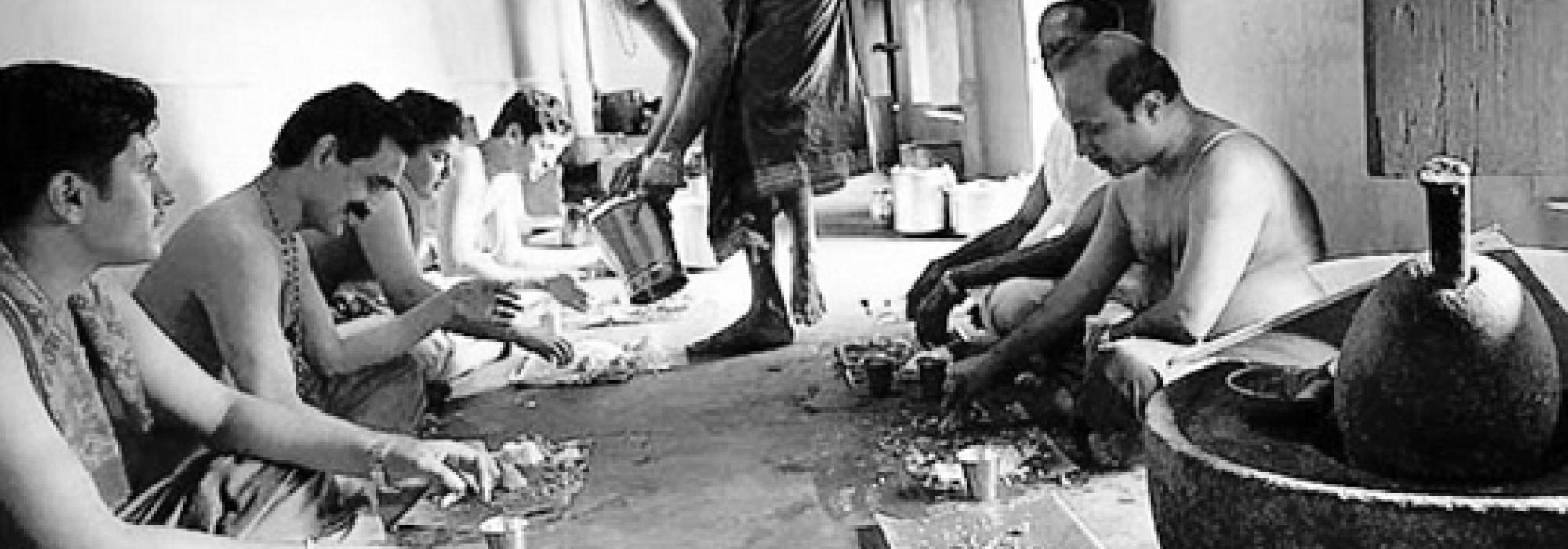नारायणस्य शय्यायां भोजनं स्यात्तु नोचितम् |
कथं साधु तदीयादिजन्मभक्षणमेव वः ||
Maṅgaleśvara-śāstri once went on a pilgrimage to Puri to see the deity Jagannātha. When he sat down for a meal in the temple at Puri, he was not given a plantain leaf to eat on. He picked a few leaves from a nearby banyan tree, and fashioned a plate by tacking them together. Seeing this, the local Brahmins (known as the ‘Gouda Brahmins’), who were waiting to be served on the traditional plantain leaves, created a ruckus. Śāstri was surprised and asked what the fuss was all about. They answered disapprovingly, ‘Is it right to desanctify Śrī Nārāyaṇa’s bed by eating upon it?’ Śāstri’s witty mind spontaneously came up with the above śloka:
“It may not be right to eat off Nārāyaṇa’s bed, but how right is it to eat his very first avatara?”
(The image of the baby Kṛṣṇa sleeping on a banyan leaf is popular from the time of the purāṇas. The first avatara of Nārāyaṇa is the fish - Matsyāvatāra.)
It is well known that Bengali Brahmins eat fish. When Śāstri ridiculed this practice, the people who had objected to his eating off the banyan leaves felt ashamed and fell silent. Satirical poems on the practices of the Brahmins of Bengal have been composed by many, starting from Kṣemendra. Even Kāvyakaṇṭha-vāsiṣṭha Gaṇapati, a wordsmith, says ‘अमी न मीनव्यसनं त्यजन्ति’.
Adapted from Kannada by Arjun Bharadwaj
(The original article is from the anthology Kavitegondu Kathe)















































